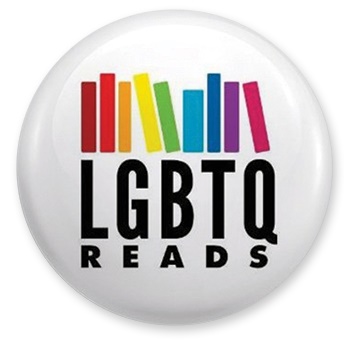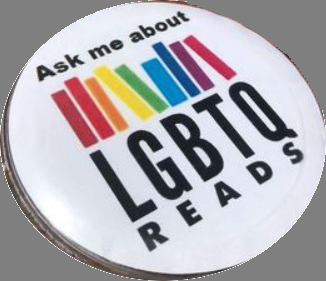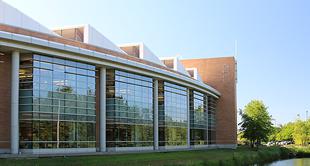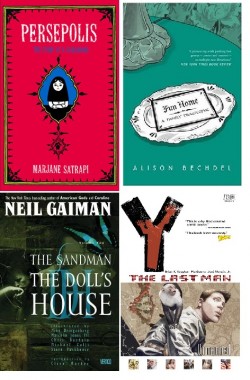Related
When workers at the Hurricane branch of the Washington County Library System, UT, were told to change signage on LTBTQ-themed displays and stop wearing buttons pointing library visitors to LGBTQ resources, they brought their concerns to the local press.
Library workers in Utah were asked to stop wearing buttons which offered to recommend LBGTQ materials this June, according to a local news outlet.
The Aurora Public Library (APL), IL, took down a controversial poem displayed at its Santori Public Library that appeared to express anti-Muslim sentiment and violence against Muslim women. The poem’s author, George Miller, professor and chair of the philosophy department at Lewis University, Romeoville, IL, stated that it was written as satire and not intended to be anti-Muslim.
ore than 300 residents of Orange City, IA, signed a petition in February urging the Orange City Public Library (OCPL) to label and separate books containing LGBTQ (lesbian, gay, bisexual, transgender, and questioning) content and themes. The OCPL board ultimately decided to group books by subject and subcategory rather than alphabetical order by an author’s name.
Conflicts that pit our professional stance in favor of intellectual freedom against citizen pressure or our own impulses to suppress “inappropriate” expression is the oldest challenge librarianship faces. When the modern library movement was born, librarians thought they were gatekeepers. Early debates over whether fiction should be banned ultimately morphed into the profession’s current position: no one has the right to tell anyone else what they are allowed to read.
On May 16 U.S. District Judge John J. Tharp Jr. dismissed a second amended complaint filed by Bridget Bittman, former public information director of the Orland Park Public Library (OPPL), IL, against New Jersey–based blogger Dan Kleinman, who describes himself as a “library watchdog” on his website SafeLibraries
The administration at Crafton Hills College, a community college in Yucaipa, CA, recently denied a student’s request to remove what she considered objectionable material from a college course on graphic novels. After enrolling in the course and purchasing her books, Tara Schultz was surprised to learn that some of the titles included mature material. “I expected Batman and Robin, not pornography,” she told the Redland Daily Facts (RDF). The four books on the syllabus she found objectionable included: Fun Home, by Alison Bechdel (Houghton Mifflin, 2006); Y: The Last Man, Vol. 1, by Brian Vaughan (Vertigo, 2003); The Sandman, Vol. 2: The Doll’s House, by Neil Gaiman (1990, DC Comics); and Persepolis, by Marjane Satrapi (Pantheon, 2004).
At Illinois’s 99th General Assembly on February 29, State Representative Peter Breen (R-District 48) introduced House Bill 2689, which would create the Internet Screening in Public Libraries Act (ISPLA). The act provides that every public library in the state of Illinois must have a “technology protection measure,” such as filtering software, in place on all public computers “to prevent the display on a public computer of any visual depictions that are obscene, child pornography, or harmful to minors.” The library may disable the technology on request for an adult engaged in legitimate research. ISPLA contains no definition of “legitimate research.”
The 2014 American Library Association (ALA) annual conference in Las Vegas this week set the stage for Banned Books Week, scheduled for September 21-27, 2014. This year, Banned Books Week will shine light on banned and challenged comic books and graphic novels. On the show floor, the Comic Book Legal Defense Fund (CBLDF), which provides legal support and expertise to readers, authors, and librarians, debuted a new handbook offering rundowns of commonly challenged comic titles, myths about banned books, and ideas for programming around Banned Books Week.
Controversy over reading selections at a pair of colleges in South Carolina last year has reared its head again, and this time it may result in budget cuts for the College of Charleston and the University of South Carolina Upstate. The budget committee in the state House of Representatives recommended budget cuts totaling $70,000 for the two schools, which assigned incoming students and others to read literature about LGBT issues last year.
Now is the time to find, create, or build the will to secure net neutrality, instilling in policy the equitable access to the Internet we have come to rely on as a society. Last month’s ruling against the Federal Communications Commission (FCC) denied the body’s authority to regulate Internet service providers (ISPs) as if they were common carriers without designating them as such. The decision releases ISPs to do as they please in developing commercial interests and threatens to allow the usurpation of the essential public resource the Internet has become.
At the American Library Association (ALA) Midwinter conference in Philadelphia, the organization’s Office for Intellectual Freedom (OIF) stated that the number of challenges to books in school and public libraries is on the rise. Some464 challenges were reported to OIF officials in 2012, a steep rise from the 328 recorded in 2011 and 2010’s total of 346 reported challenges.
The American Library Association has launched a new website, ala.org/liberty, in response to the recent revelations about widespread surveillance by the National Security Agency (NSA). The site offers a toolkit and other resources for libraries to convene forums and moderate community discussions on privacy. Many more resources will be added in the weeks to come, an ALA representative said.
articles
ALREADY A SUBSCRIBER? LOG IN
We are currently offering this content for free. Sign up now to activate your personal profile, where you can save articles for future viewing












